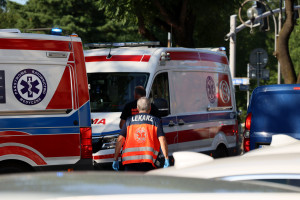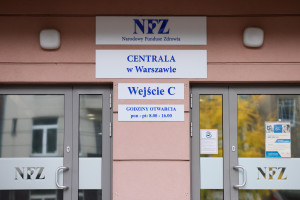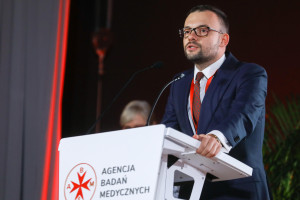Higher limits for medicine? The ministry's list includes the Catholic University of Lublin and Father Rydzyk University.

- The Ministry of Science and Higher Education recommends resuming first-year recruitment for five universities and increasing the admission limit for another four.
- If the Ministry of Health accepts these recommendations, the limit of admissions to medicine taught in Polish will increase by 280 places.
- The medical profession's government opposes this policy. It emphasizes that Poland doesn't need more doctors, and that the long waits for specialists that patients face are largely a result of the system's inefficiency.
This year, students can choose from 185 more places in medicine than last year, and there are indications that this number will increase. The Ministry of Science and Higher Education (MNiSW) is recommending to the Ministry of Health to resume first-year enrollment at five universities that were de-registered last year, including two that received negative reviews from the Polish Accreditation Committee (PKA).
Additionally, it proposed to increase the limits provided for in the draft regulation of the Ministry of Health for four more universities.
The draft regulation of the Ministry of National Health regarding admission limits for medical and dental programs, published in June, listed 33 universities, including 24 supervised by the Minister of Science and 9 medical schools overseen by the Ministry of Health. As of October, they were to offer a total of 10,249 places in medical and 1,441 in dental programs. Five universities were omitted from the list. Their admission limits were lifted a year ago due to a negative assessment by the Polish Accreditation Committee (PKA), even though they had already been training future doctors for two semesters.
This year, these programs were re-evaluated by the accreditation committee. Three out of five successfully passed the review, and the Ministry of Science recommended reinstating the limits in its comments on the draft regulation.
At the University of Siedlce, the limit would be half of that proposed by the university, i.e. 30 places for uniform master's studies.
The ministry proposed to allocate 30 places to the Poznań Academy of Medical Applied Sciences named after Prince Mieszko I and 10 to foreigners for studies conducted in Polish, and up to 50 places to the University of Social Sciences in Łódź .
Moreover, the Ministry of Science and Higher Education has also requested an increase in the projected limits for another four universities:
- WSB University in Dąbrowa Górnicza by 20 places in full-time studies conducted in Polish (from 60 to 80 places);
- the John Paul II Catholic University of Lublin (KUL) for 20 places in full-time studies in Polish (from 60 to 80 places);
- Academy of Social and Media Culture in Toruń - Academy of Applied Sciences for 20 places in full-time studies in Polish (from 60 to 80 places) and the award of 5 places in full-time studies conducted in Polish - places for foreigners;
- Wrocław University of Science and Technology by 50 places for full-time studies in Polish (from 40 to 90 places).
All of them will be educating students in the medical field for the third year from October this year.
Medics warn that we are already educating too many doctors. "Limits are not meeting needs."The final decision on admission limits will rest with the Ministry of Health. If it approves the Ministry of Science's recommendation, the limit on full-time studies conducted in Polish will increase by 280 places (the Ministry of Science and Higher Education also proposes to allocate 30 places each to non-accredited universities: ANS in Nowy Targ and ANS in Nowy Sącz).
For now, the ministry has only extended the deadline for submitting applications to universities for funding from the National Operational Programme for investments related to the modernization and equipping of teaching facilities due to the increased admission limits for medical studies.
The medical profession's self-government strongly protests against the continued increase in these costs. It expressed this in its official position on the draft regulation of the Ministry of Health.
The Supreme Medical Council warns in it that "the assumptions currently adopted by the Ministry of Health will lead to a situation in which the number of doctors in Poland in 2032 will exceed the forecasted demand for services."
Meanwhile, medical admissions limits should be based on the demand for physicians in the country. This should both satisfy this need and enable all physicians to further their professional development. Therefore, the local government believes that medical staff training should be based on a long-term strategy based on factual data and real needs, rather than on one-year plans.
Doctors also call for supporting, above all, the development and increasing enrolment in universities with a general academic profile, where the quality of education of future doctors has already been positively verified both by the relevant institutions and by the skills of their graduates starting their postgraduate internships and professional work.
"Educating a physician is not only about acquiring professional competencies, but also about acquiring the skills necessary for scientific work. Ensuring the proper quality of education for physicians and dentists requires qualified and experienced teaching staff and access to clinical facilities," argues the NRL.
He also points out that the current queues at doctor's offices are not the result of staff shortages, but largely of the inefficiency of the system, in which doctors spend more than half of their time fulfilling bureaucratic and documentation duties, instead of working with patients.
Copyrighted material - reprint rules are specified in the regulations .
rynekzdrowia













